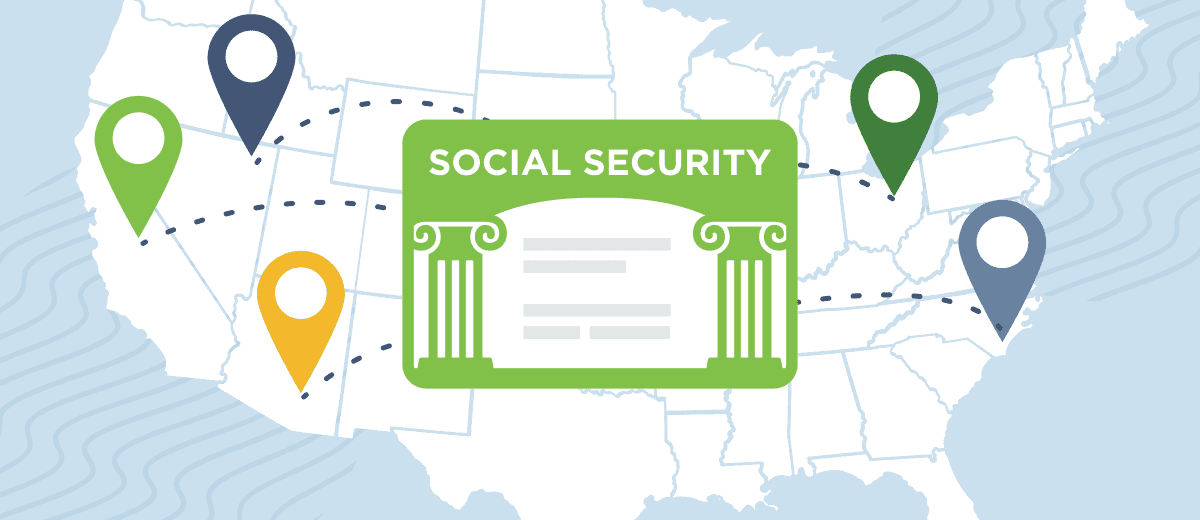A Social Security Number Trace is often the first step in the background screening process. Find out what you’ll learn from an SSN Trace, why it’s a logical starting point for a background check, and why employers may want to consider additional screenings as part of a comprehensive pre-employment background check.
A pre-employment background check often begins with a Social Security Number Trace, or SSN Trace. Searching the history and validity of a candidate’s Social Security number can be a helpful first step for assessing and confirming a candidate’s identity, and conducting accurate checks on criminal background, credit history, and more.
What Is An SSN Trace?
An SSN Trace, sometimes referred to as a Social Security background check, is a database search that includes information from lending institutions, utilities, schools, and credit card companies, which may provide basic information regarding a candidate’s Social Security number. This data may include the year the SSN was issued by the Social Security Administration, the state in which it was issued, names associated with the SSN, and an address history.
SSN Traces allow employers or consumer reporting agencies (CRAs), like GoodHire, to cross-reference a candidate’s submitted information with available database information associated with the SSN prior to running more comprehensive searches, such as criminal record checks or credit reports.
Though SSN Traces may show inconsistencies between information submitted by a candidate and their SSN, an SSN Trace report can’t verify the submitted SSN belongs to the candidate. For this reason, and others involving pre-employment security measures, employers may choose to perform a full identity verification as part of their pre-employment screening process.
Why Include An SSN Trace In Background Checks?
SSN Trace reports give employers more information about a candidate to inform other, more in-depth background checks. Therefore, an SSN Trace is often an important first step in a pre-employment background screening.
Here are three reasons to consider conducting a background check with a Social Security Number Trace:
1. highlight potential identity issues
Background check providers often utilize SSN Traces to check whether a SSN is valid and whether information associated with the SSN matches the candidate-submitted information. SSN Trace reports can confirm whether or not the provided SSN is in use, or if it may belong to a different name, which could be signs of mismatched information from identity theft or mistaken identity issues.
2. Verify accurate SSN information
An SSN Trace can help ensure the background screening results you receive match your candidate—and aren’t confused with data on someone with a similar name and date of birth. Matching the wrong Social Security number to your candidate could cause you to deny a job to a qualified candidate or lead to potentially time-consuming disputes that may delay your hiring process.
3. provide jurisdictional context for criminal record searches
The results of an SSN Trace may indicate the candidate has lived at multiple locations in the past seven years. An employer may wish to use that information to inform other searches, such as state or county criminal record checks.
What Does An SSN Trace Show?
An SSN Trace may return the following information related to an candidate’s Social Security number:
- Whether the number is a valid SSN currently in use
- Year it was issued
- State in which it was issued
- Names associated with the SSN, including maiden names and aliases
- Recent address history associated with the SSN
It’s important to note, that the results of an SSN background check may vary depending on the CRA performing the search. CRAs have access to varying data sources which could result in differing SSN Trace results.
what an ssn trace doesn’t show
Though SSN Traces can be a helpful starting point in the background check process, they’re not an exhaustive source of candidate information. For example, an SSN Trace doesn’t verify the owner of the SSN – only whether it’s valid and in use. Because this search is limited in scope, employers may wish to expand their employee screening process with additional background checks.
How To Run An SSN Trace Background Check
The easiest way to run an SSN Trace background check is by partnering with a qualified background check provider, like GoodHire. Screening providers can also help you conduct comprehensive background checks using an SSN Trace as a starting point, offering additional screenings such as criminal records, driving records, credit history, and more.
While employers are allowed to ask for a Social Security number on a job application, candidates aren’t legally obligated to provide it. Partnering with a CRA can help provide peace of mind for the candidate by providing their information directly and securely.
When partnering with a CRA, employers must comply with the requirements of the federal Fair Credit Reporting Act (FCRA) for employment background screenings. Under the FCRA, candidates must receive written notification of your intent to conduct a background check and you must receive the candidate’s written consent before proceeding. If you decide not to hire the candidate based on information found in the report, you must also follow the adverse action process.
FAQs on Social Security Number Traces
Here are answers to some commonly asked questions about SSN Traces:
Are Social Security Number Traces reliable?
SSN Traces are often only as reliable as the SSN submitted by a candidate. For this reason, it’s important that employers consider running a complete identity verification as part of the pre-employment screening process.
Where does the information on SSN Traces come from?
What shows up on a Social Security background check is pulled from multiple data sources, including but not limited to lending institutions, schools, government agencies, credit card companies, and utility companies.
How far back do SSN Traces go?
SSN Trace reports pull data from various sources, so exact periods may depend on the information being gathered, as well as the age and credit history of the individual. Generally speaking, SSN Trace reports go back anywhere from three to ten years.
What is the different between an SSN Trace & SSN Verification?
An SSN Trace pulls a wide range of information regarding the SSN in question, and is typically used during pre-employment background checks. SSN verification is often used after hiring to confirm the name and SSN number of an employee matches the Social Security Administration’s record, using Form I-9.
Get A Social Security Background Check With GoodHire
GoodHire helps employers navigate the pre-employment background screening process, beginning with SSN Traces and including 100+ screening options for comprehensive background checks. Our packages can easily be tailored to meet your needs, while fast turnaround times help you save time and scale your team quickly. Get started.
Disclaimer
The resources provided here are for educational purposes only and do not constitute legal advice. We advise you to consult your own counsel if you have legal questions related to your specific practices and compliance with applicable laws.
About the Author
As GoodHire’s managing editor, Sara Korolevich produces educational resources for employers on a variety of employment screening topics, including compliance and screening best practices, and writes about GoodHire’s company and product news. Sara’s experience stems from 20+ years working as a B2C and B2B PR and communications professional.


